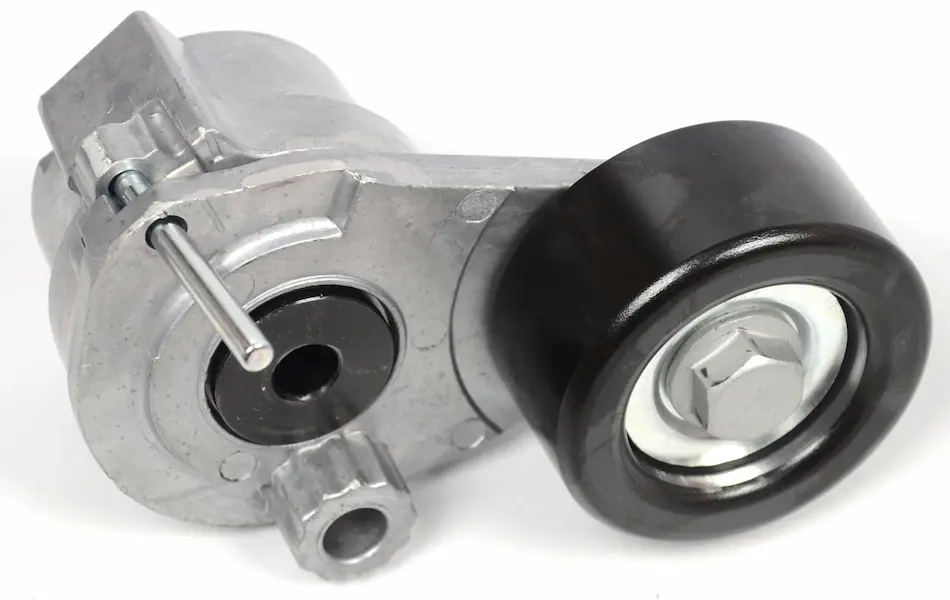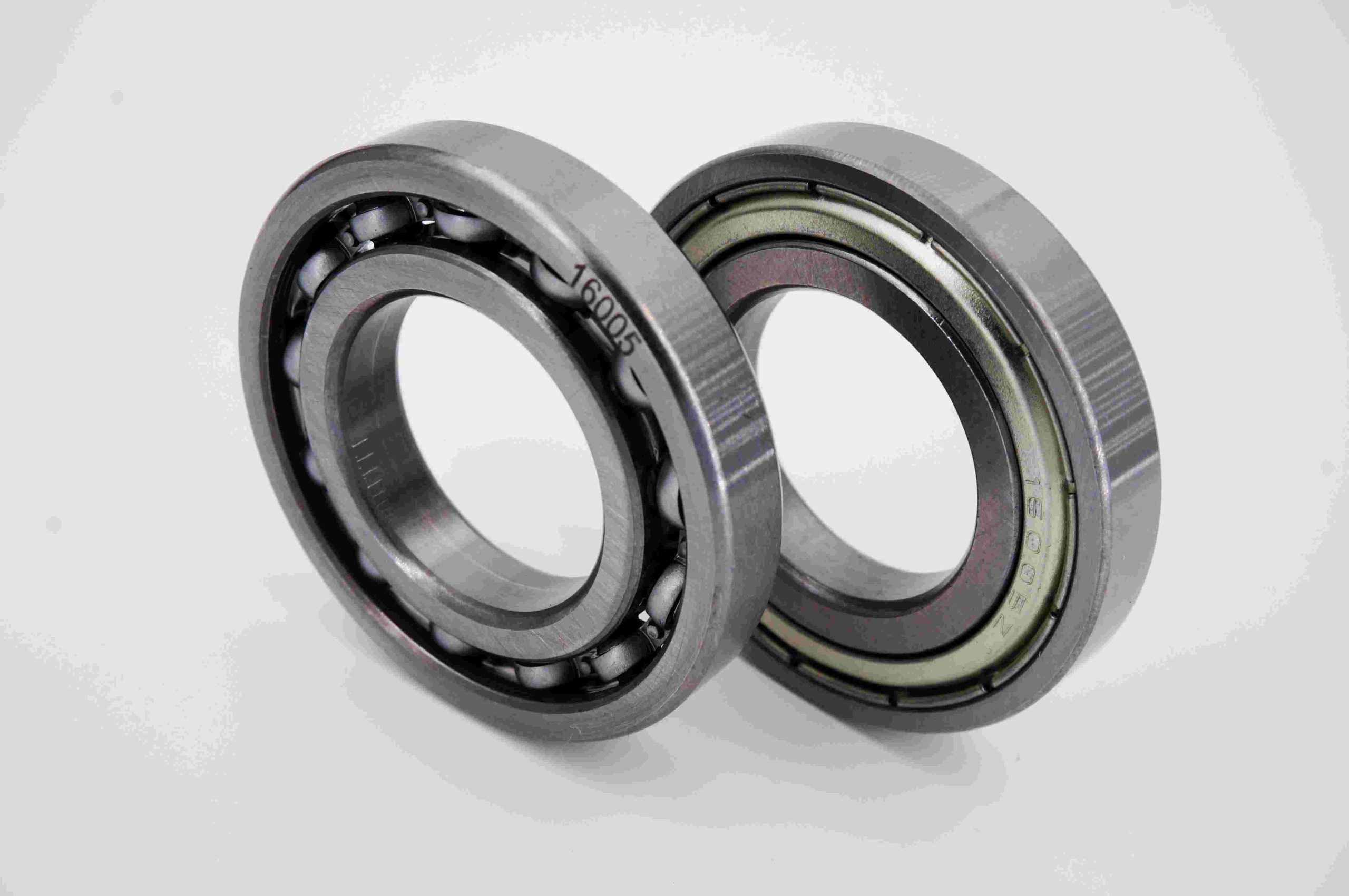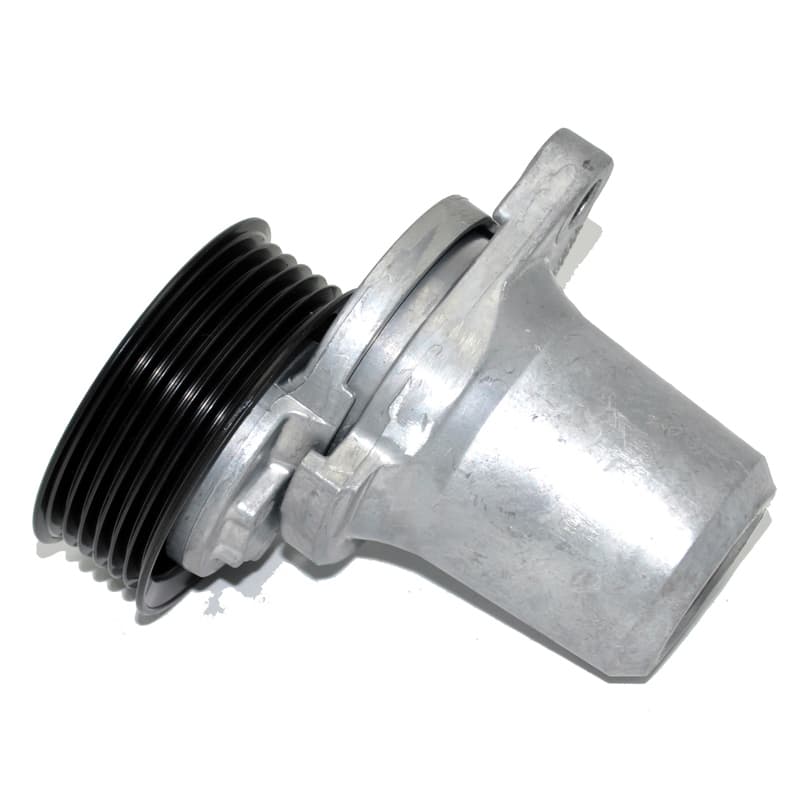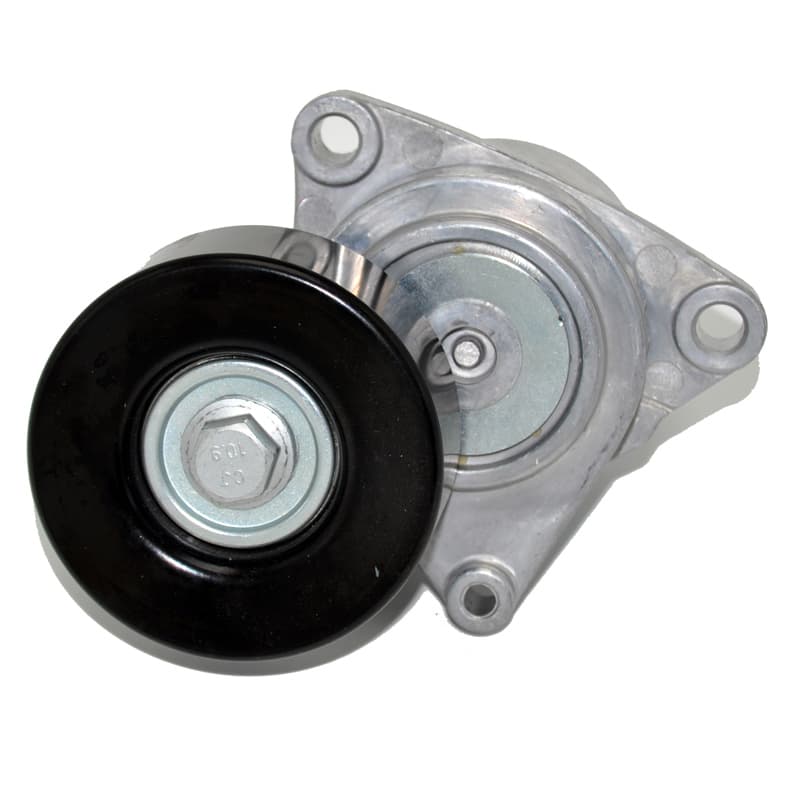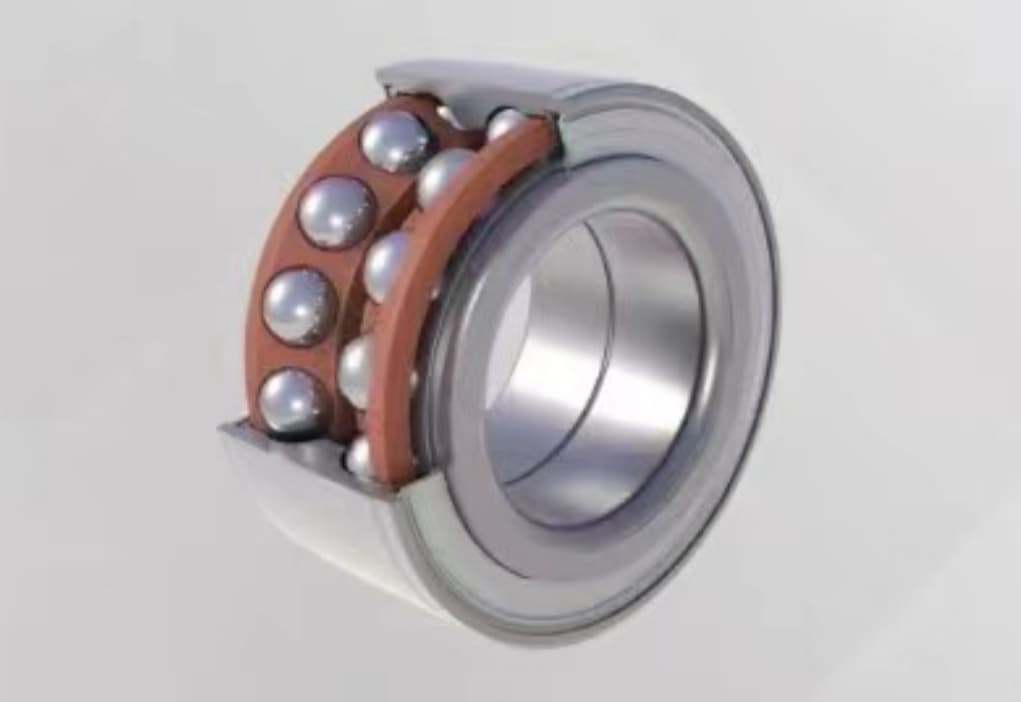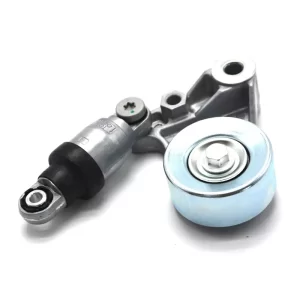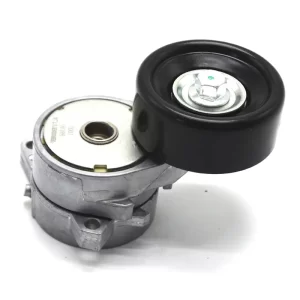Los tensores y las poleas tensoras son componentes integrales para mantener el rendimiento y la eficacia de los sistemas de motor. Los tensores, diseñados específicamente para regular y ajustar la tensión de las correas o cadenas, garantizan que estos componentes permanezcan correctamente alineados con las poleas o piñones. Esta alineación precisa es crucial, ya que reduce el desgaste, minimiza la pérdida de potencia y garantiza la transmisión eficaz de la potencia por todo el sistema del motor.
Las poleas tensoras desempeñan un papel fundamental a la hora de guiar y mantener la tensión adecuada en las correas de transmisión de los accesorios del motor. Su función principal es guiar las correas con precisión y mantener la tensión correcta. Al realizar estas funciones, las poleas tensoras contribuyen significativamente al buen funcionamiento del sistema de transmisión de accesorios del motor. Esto se traduce en una reducción del ruido y las vibraciones, mejorando el rendimiento general del motor.
En lo que respecta a los tensores, hay varios tipos disponibles, cada uno adecuado para aplicaciones diferentes:
Tensores automáticos: Estos tensores se ajustan automáticamente en respuesta a las condiciones del sistema o por medios mecánicos, como mecanismos accionados por resorte. Están diseñados para mantener una tensión óptima sin necesidad de intervención manual, lo que los hace ideales para aplicaciones en las que el ajuste automático resulta beneficioso.
Tensores manuales: A diferencia de los tensores automáticos, los tensores manuales requieren un ajuste manual para fijar la tensión adecuada. Esto suele hacerse mediante pernos u otros mecanismos manuales. Aunque ofrecen un enfoque más práctico del ajuste de la tensión, pueden requerir comprobaciones y ajustes periódicos en función del desgaste y el rendimiento del sistema.
Tensores hidráulicos o neumáticos: Se emplean en aplicaciones más exigentes en las que es crucial un control preciso y constante de la tensión. Suelen utilizarse en maquinaria pesada o aplicaciones de alta velocidad en las que los tensores tradicionales pueden no ofrecer la precisión o el rendimiento necesarios.
Las poleas tensoras también existen en varios tipos para adaptarse a diferentes necesidades:
Poleas lisas: Se trata de poleas sencillas con una superficie lisa sobre la que discurre la correa. Se utilizan en situaciones en las que no se requiere tracción adicional, por lo que son adecuadas para aplicaciones con requisitos mínimos de agarre de la correa.
Poleas tensoras ranuradas: Las poleas tensoras ranuradas presentan ranuras que se alinean con el perfil de las nervaduras de la correa. Se utilizan en sistemas de correa serpentina en los que es necesaria una alineación y tracción precisas para transmitir la potencia de forma eficaz. Las ranuras ayudan a garantizar que la correa permanezca en la posición correcta y mantenga una transferencia de potencia eficaz.
Si conoce los diferentes tipos de tensores y poleas tensoras, así como sus aplicaciones específicas, podrá tomar decisiones informadas sobre qué componentes satisfacen mejor las necesidades de su sistema de motor. Cada tipo de tensor y polea tensora tiene sus propias ventajas y está diseñado para satisfacer requisitos particulares, garantizando el rendimiento óptimo y la longevidad del sistema de transmisión de su motor.
Aplicaciones en sistemas de automoción:
- Sistemas de correas de distribución: En los motores con correas de distribución, las poleas tensoras se utilizan para guiar la correa y mantener la tensión entre el cigüeñal y el árbol o árboles de levas, garantizando una sincronización precisa de los componentes del motor.
- Sistemas de propulsión accesorios: Las poleas tensoras se encuentran en sistemas que accionan componentes como la bomba de agua, la bomba de la dirección asistida, el compresor del aire acondicionado y el alternador. Estos componentes son vitales para el funcionamiento del vehículo y la comodidad de los pasajeros.
Excelencia en ingeniería
- Fabricación de precisión: Cada polea se fabrica utilizando maquinaria CNC avanzada, garantizando especificaciones y tolerancias exactas. Esta precisión garantiza un ajuste perfecto y un rendimiento óptimo en los vehículos Buick, Chevrolet y Cadillac.
- Diseño innovador: Con mejoras de diseño avanzadas, la serie garantiza una mejor alineación de la correa y una tensión constante, evitando el deslizamiento y reduciendo el desgaste.
Calidad del material
- Materiales de primera calidad: Fabricadas con materiales de primera calidad, como acero reforzado y polímeros avanzados, estas poleas soportan condiciones extremas y ofrecen una excelente resistencia al calor, la corrosión y las tensiones mecánicas.
- Rodamientos sellados: Al incorporar rodamientos sellados de alta calidad, estas poleas proporcionan un funcionamiento suave y silencioso a la vez que protegen contra la entrada de suciedad y humedad, alargando la vida útil de los componentes.
Ventajas de rendimiento
- Mayor durabilidad: Con materiales y técnicas de construcción superiores, las poleas de las series Buick, Chevrolet y Cadillac ofrecen una durabilidad excepcional, incluso en condiciones de funcionamiento duras.
- Tensión óptima: La polea tensora mantiene la tensión correcta en la correa de transmisión, crucial para el funcionamiento eficiente del motor. Así se evita que la correa patine o quede demasiado tensa, reduciendo el desgaste.
- Funcionamiento sin problemas: La polea tensora asegura que la correa de transmisión se mueva suavemente sobre los componentes del motor, minimizando el ruido y las vibraciones para una experiencia de conducción más silenciosa.
Principio de funcionamiento
- Polea tensora: La polea tensora aplica una fuerza controlada a la correa de transmisión, manteniendo la tensión correcta necesaria para un rendimiento óptimo. El muelle tensor se ajusta para adaptarse al estiramiento de la correa y a las vibraciones del motor, garantizando una tensión constante. Esto evita el deslizamiento de la correa y garantiza una transmisión eficaz de la potencia a los distintos componentes del motor.
- Polea tensora: La polea tensora guía y soporta la correa de transmisión, asegurando que se mueva suavemente sobre los componentes del motor. Actuando como punto de enrutamiento, mantiene la trayectoria y la alineación correctas de la correa, reduciendo la fricción y el desgaste, lo que contribuye a la eficiencia general y la longevidad del sistema de correa de transmisión.

